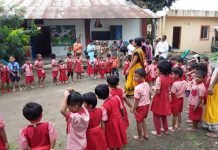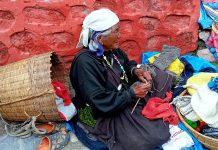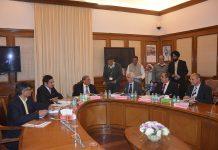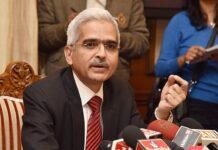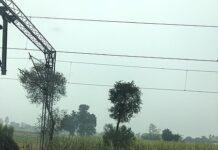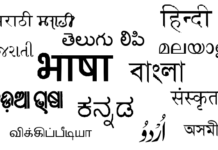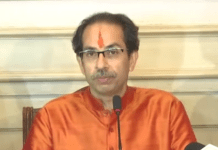Launched in 2005, NRHM ensures community partnership in making health systems efficient, need based and accountable. Community partnership has been institutionalized from the village level up to the national level. Village Health Sanitation and Nutrition Committees (VHSNCs) at revenue village, the public health facility level Rogi Kalyan Samitis and the health missions at the district, state, and national levels were constituted. These institutions ensure participation of the elected representatives, civil society organizations, eminent persons and local groups along with the health functionaries and the representatives of stakeholder government departments in decision-making and utilization of the funds. Additionally, with the launch of National Urban Health Mission in 2013, the community partnership in urban slums was ensured through Mahila Arogya Samitis. With the shift towards comprehensive health care in 2017, the Jan Arogya Samitis are instituted at more than 1,60,000 Ayushman Arogya Mandirs (Health and Wellness Centres) at the sub health centre and primary health centre level.
This is an ideal mechanism if all institutions at each level are active. Sadly, this is not the case. The most intrinsic problem with these community-based institutions is that the local people and elected representatives for whom these are meant are not aware of their existence. Secondly, there have been limited resources and capacities available with the state governments to build the capacities and nurture these institutions. Thirdly, the functionality of these institutions is also dependent upon the meaningful participation of the stakeholder departments such as ICDS, PHED, Education and others. In most places, these ex-officio members are not aware of their membership and even if they are aware, they don’t realise their role to fulfil the mandate of these institutional structures. Fourthly, the untied funds to these institutions have been either not provided regularly or are delayed or less amount is provided than mandated.
The 15th Common Review Mission observes poor functionality status of these community-based platforms with limited awareness among the members on their roles and responsibilities, irregular and inadequate fund availability and its utilization and lack of training of the members in most of the states. 15th CRM recommends states “ to prioritise empowerment of community based platforms by enhancing their participation and engagement in the health systems, which would need adequate orientation, training and mechanisms for regular meetings and monitoring.” At places where these institutions are capacitated and key leaders played their role well, the government hospitals have transformed, the Panchayats have allocated resources from own funds to improve health services based on local needs and have impacted local health indicators.
In my view coming from my experience of working with these community-based institutions- a comprehensive approach which must constitute- (a) allocation of resources for the independent facilitation mechanisms to train and build capacities of these institutions for at least five years on continuum basis; (b) ensuring adequate and regular flow of funds to make these institutions functional; and (c) building leadership skills of member-secretaries of these community-based platforms to ensure good governance and effective functioning.
***
References:
- National Rural Health Mission-Framework for Implementation, MoHFW, GoI- Available at https://nhm.gov.in/WriteReadData/l892s/nrhm-framework-latest.pdf
- National Urban Health Mission-Framework of Implementation, MoHFW, GoI- Available at https://nhm.gov.in/images/pdf/NUHM/Implementation_Framework_NUHM.pdf
- Reviving Hopes and Realising Rights: A Report on the first phase of community monitoring under NRHM- Available at https://www.nrhmcommunityaction.org/wp-content/uploads/2017/06/A_report_on_the_First_phase_of_Community_Monitoring.pdf
- 15th Common Review Mission report- Available at https://nhsrcindia.org/sites/default/files/2024-01/15th%20CRM%20Report%20-2022.pdf
- Rapid Assessment: Rogi Kalyan Samiti (RKS) & Village Health Sanitation &Nutrition Committee (VHSNC) in Uttar Pradesh; Advisory Group on Community Action, Population Foundation of India. Available at https://www.nrhmcommunityaction.org/wp-content/uploads/2016/11/Report-on-Rapid-Assessment-of-RKS-and-VHSNC-in-Uttar-Pradesh.pdf
- Assessment of VHSNCs in Manipur, Meghalaya and Tripura- Regional Resource Centre for North Eastern States, Guwahati, Government of India-.Available at https://www.rrcnes.gov.in/study_report/Compiled_VHSC%20Report_Final.pdf
***


